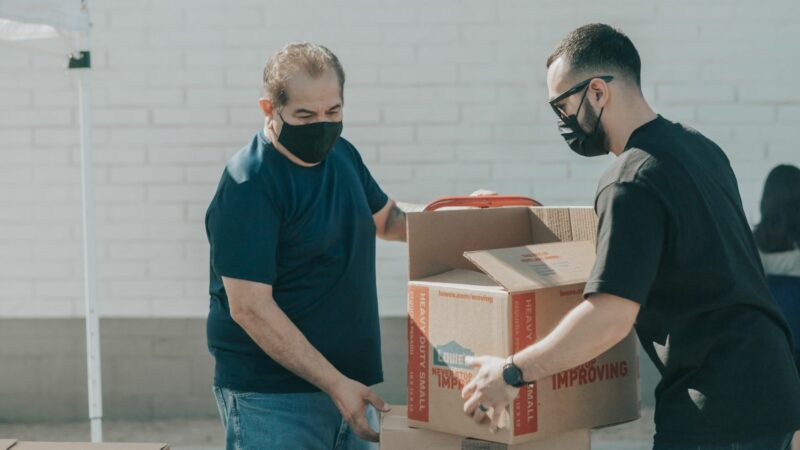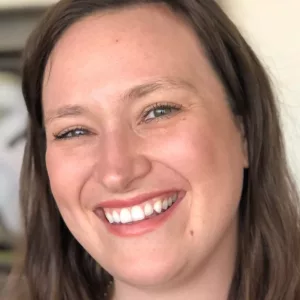How do you want to leave your mark on this world? What matters most to you? What would you want to be different in the world? These are just a few of the questions that help lead a person to uncovering what their purpose is in life.1 Of course, discovering your purpose in life sounds like a lofty goal—a real Big Deal! However, it might be simpler than you think. Specifically, for many, a purpose in life is being a good parent, healing other people, or making the world a better place. Any aim can be a purpose, as long as it includes three key elements: (1) you are working toward long-term goals that coincide with your purpose, (2) the goals you’re working on (and reasons for doing them) are meaningful to you, and (3) your purpose influences someone or something in the world beyond just you.2
Purpose as Beyond the Self
While self-care goals are also important, a purpose is something that influences other people, animals, or even plants. Thus, it makes a difference in the world beyond just ourselves. For instance, if my purpose was to make the world a better place, I could pursue that in many ways, such as becoming a scientist who develops vaccines. Another way might be becoming an environmental advocate who works to protect our lands and seas. In addition, other approaches include creating beautiful music that uplifts or bring peace to my community, or being an excellent elementary school teacher who helps nurture today’s youth. Whatever your purpose may be, it can help you thrive.
The Associated Benefits
Having a purpose in life can help you feel more resilient3 to the world around you—something we could all use in these turbulent times. Moreover, it can help you feel less anxiety and depression,4-5 improve your physical health,6 and even help you live longer.7 It may also naturally strengthen our identity.8 Purpose is also linked with feeling more satisfied with our lives5 and having more grit.9—or having passion and perseverance for our goals. For example, a study showed that students who have purposeful goals report finding more meaning in their schoolwork.10 Researchers think of purpose as a “north star,” or a guiding light that helps us walk down a meaningful path—which consequently, makes it easier for us to find mentors and friends who are walking along or nearby our same path.
Discovering Our Purpose
However we find ourselves, many ask questions such as: Who am I now? What do I want now? Perhaps you finally realize you have a penchant for social justice, dedication to medical science, or deeper devotion to building up your family and surrounding community.
Purposeful Activities
Identifying and aligning your purpose to meaningful goals that positively influence the world can help you thrive. Therefore, to help you do just that, I have compiled a few of my favorite, research-backed activities for understanding your purpose in life. Here are three activities, designed and tested by Kendall Cotton Bronk (a key leader in purpose in life research) and her lab, to foster purpose.11-12
Activity 1: What’s a Purpose?
Timing:
~10 minutes
How To:
This is a really great starter activity for purpose! Watch the video clip of Jimmy Fallon offered in this activity, and then answer the following short questions about life. Click here to begin.
Activity 2: My Future Purpose
Timing:
~10-20 minutes
How To:
This is a writing exercise that will ask you to imagine your life 20 years from now. Dive in now to see how that might help you understand your purpose! Click here to start this activity.
Activity 3: Gratitude Letter
Timing:
~10-20 minutes
How To:
Research indicates that sometimes it can be just as helpful to approach understanding our purpose by first reflecting on what we are grateful for and why. This activity has you watch two video clips and then write a short letter. Jump in to get started on your purpose and gratitude journey here.
Finding a purpose in life on your own isn’t easy. In fact, only about one in four adults have a true sense of what their purpose can be.13 However, trying out activities like these might help you be that one. Also (and as always), I’d be remiss if I didn’t mention that everyone is different. Some activities will work for you; however, others won’t be up your alley. Think of it like finding your favorite physical exercise—some of us like a nice walk, while others like yoga or weight training. What works for you will be different from what works for others. With this in mind, give each activity a try, and see which one lights up your purpose!
References
1. Bundick, M. J. (2011). The benefits of reflecting on and discussing purpose in life in emerging adulthood. New directions for youth development, 2011(132), 89-103.
2. Damon, W., Menon, J., & Cotton Bronk, K. (2003). The development of purpose during adolescence. Applied developmental science, 7(3), 119-128.
3. Min, J. A., Jung, Y. E., Kim, D. J., Yim, H. W., Kim, J. J., Kim, T. S., … & Chae, J. H. (2013). Characteristics associated with low resilience in patients with depression and/or anxiety disorders. Quality of Life Research, 22(2), 231-241.
4. Pearson, M. R., Brown, D. B., Bravo, A. J., & Witkiewitz, K. (2015). Staying in the moment and finding purpose: The associations of trait mindfulness, decentering, and purpose in life with depressive symptoms, anxiety symptoms, and alcohol-related problems. Mindfulness, 6(3), 645-653.
5. Chen, H. Y., & Cheng, C. L. (2020). Developmental trajectory of purpose identification during adolescence: Links to life satisfaction and depressive symptoms. Journal of adolescence, 80, 10-18.
6. Musich, S., Wang, S. S., Kraemer, S., Hawkins, K., & Wicker, E. (2018). Purpose in life and positive health outcomes among older adults. Population Health Management, 21(2), 139-147.
7. Hill, P. L., & Turiano, N. A. (2014). Purpose in life as a predictor of mortality across adulthood. Psychological science, 25(7), 1482-1486.
8. Bronk, K. C. (2011). The role of purpose in life in healthy identity formation: A grounded model. New directions for youth development, 2011(132), 31-44.
9. Hill, P. L., Burrow, A. L., & Bronk, K. C. (2016). Persevering with positivity and purpose: An examination of purpose commitment and positive affect as predictors of grit. Journal of Happiness Studies, 17(1), 257-269.
10. Yeager, D. S., & Bundick, M. J. (2009). The role of purposeful work goals in promoting meaning in life and in schoolwork during adolescence. Journal of Adolescent Research, 24(4), 423-452.
11. Bronk, K. C., Baumsteiger, R., Mangan, S., Riches, B., Dubon, V., Benavides, C., & Bono, G. (2019). Fostering purpose among young adults: Effective online interventions. Journal of Character Education, 15(2), 21-38.
12. Learn more about Kendall Bronk’s research on fostering purpose here.
13. Bronk, K. C., Holmes Finch, W., & Talib, T. L. (2010). Purpose in life among high ability adolescents. High Ability Studies, 21(2), 133-145.
Continue Exploring

Love
What’s Love Got to Do with It? Possibly, Everything!
Thrive Fellow, Rebecca Baer, explains why loving relationships are central to thriving and the qualities we need to get and give love.

Emotions
How are mental, physical, and spiritual health related?
Physical, mental and spiritual health are interconnected as part of holistic health, with each facet influencing the health of the others.

Spirituality
Rhythms and Rest (Part 1)
Why do we need spiritual practices like Sabbath? Is it enough to just rest? This 2-Part series answers these questions and more.

